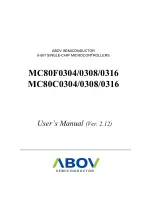
4-20 Cisco 2524 and Cisco 2525 Router User Guide
Specifying the Boot Method
Specifying the Boot Method
You can enter multiple boot commands in the configuration in NVRAM to provide a
backup method for loading the Cisco IOS image onto the router. The router boots using the
first boot command that succeeds. If you enter multiple boot commands, the router executes
them in the order they are entered. There are two ways to load the Cisco IOS image: from
Flash memory or from a TFTP server on the network.
1
Flash memory
Information stored in Flash memory is not vulnerable to network failures that might
occur when you load system software from servers. In the following example, replace
filename with the filename of the Cisco IOS image:
Router> enable
Password:
enablepassword
Router# configure terminal
Router (config)# boot system flash
filename
Router (config)# Ctrl-Z
Router# copy running-config startup-config
Building configuration ...
[OK]
Router# exit
Router>
2
TFTP server
If Flash memory is not available, or if Flash memory does not contain a valid Cisco IOS
image, you can specify that system software be loaded from a TFTP server on your
network as a backup boot method for the router. In the following example, replace
filename with the filename of the Cisco IOS image, and replace ipaddress with the IP
address of the TFTP server:
Router> enable
Password:
enablepassword
Router# configure terminal
Router (config)# boot system tftp
filename ipaddress
Router (config)# Ctrl-Z
Router# copy running-config startup-config
Building configuration ...
[OK]
Router# exit
Router>



































